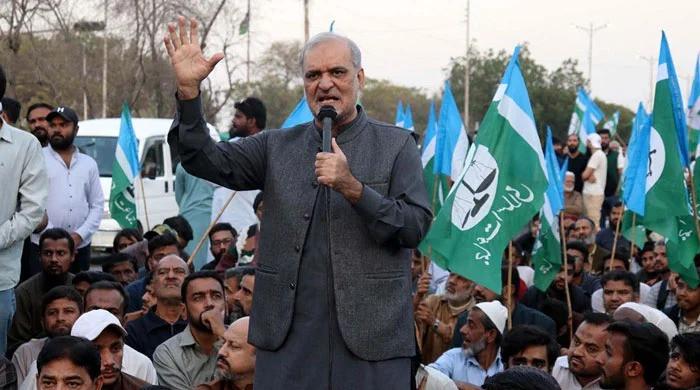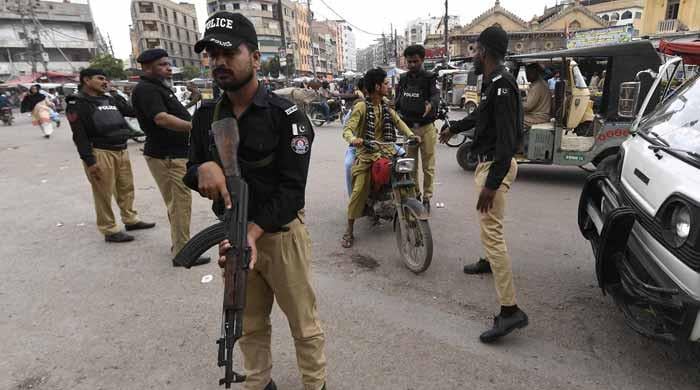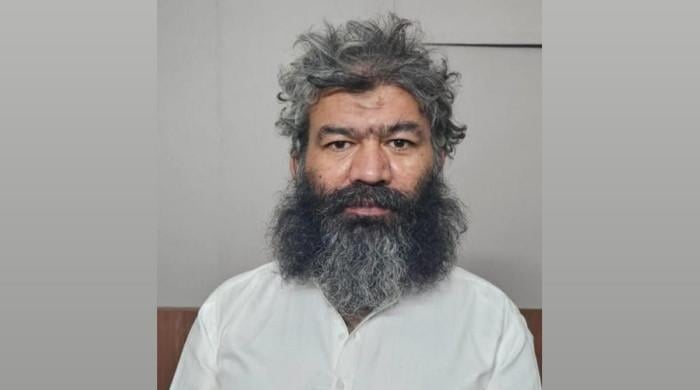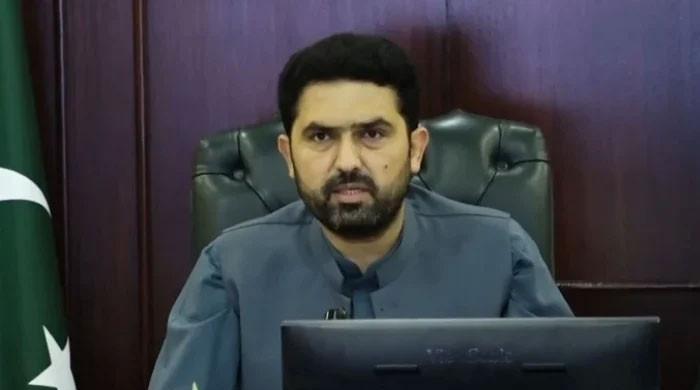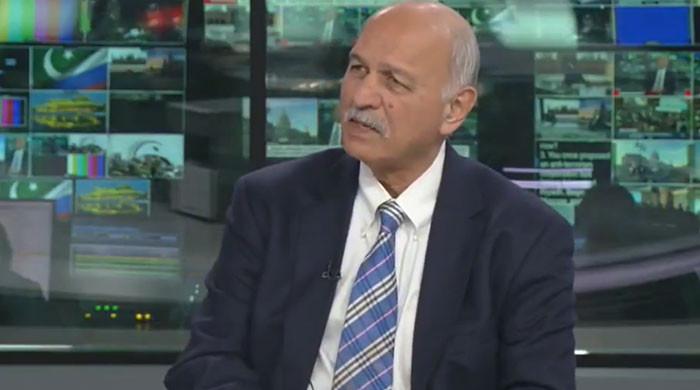Pakistan to host extraordinary international session on Afghanistan on Dec 19
Extraordinary session aims to highlight the need for urgent assistance to avert a humanitarian crisis in Afghanistan
December 04, 2021
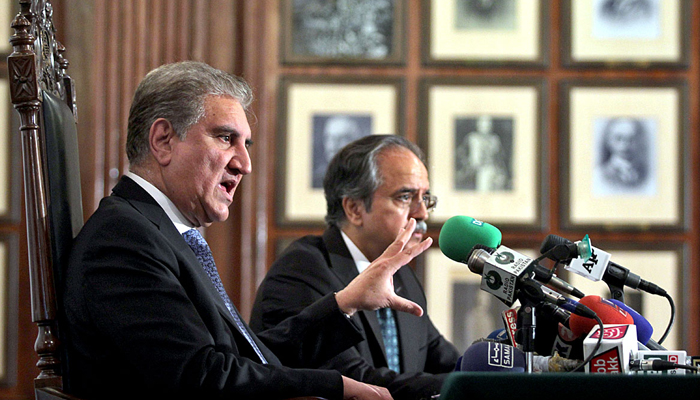
- The extraordinary session with OIC foreign ministers on the Afghanistan situation would be held after 41 years.
- Extraordinary session aims to highlight the need for urgent assistance to avert a humanitarian crisis in Afghanistan.
- Besides the foreign ministers of OIC countries, Pakistan has also invited special representatives of P5 countries.
LAHORE: Foreign Minister Shah Mahmood Qureshi Saturday announced that Pakistan will host an extraordinary meeting of foreign ministers from the Organisation of Islamic Cooperation (OIC) on December 19.
Addressing a press conference, the minister highlighted that the objective behind the extraordinary session is to highlight the need for urgent assistance and mobilisation of resources to avert a humanitarian crisis and economic collapse in war-torn Afghanistan.
“If we don’t pay timely attention, half of Afghanistan’s population (22.8 million people) can face food shortage while 3.2 million children may face malnutrition," Qureshi said, adding that this is the magnitude which "we and the world should understand".
He said: "Considering the gravity of the situation, Pakistan has made an effort and moved ahead to host the international event realising that, if not addressed timely, the situation would have dire consequences for Afghanistan, its neighbours as well as the whole region."
"The country could face an economic collapse if its frozen assets are not released to cope with the burgeoning needs."
It is pertinent to mention here that an extraordinary session with OIC foreign ministers on the Afghanistan situation would be held after 41 years with the first held in 1980.
Sharing details of the meeting, Qureshi said besides the foreign ministers of OIC countries, Pakistan has also invited special representatives of P5 countries — permanent members of the United Nations Security Council — including the US, China, Russia, France and the UK.
The special representative of the European Union on Foreign Affairs has also been invited, while an invitation would also be sent to the World Bank and relevant UN agencies which could assist in the whole process.
He revealed that Pakistan also plans to invite important countries like Germany, Japan, Canada and Australia in order to evolve an international consensus.
Qureshi said Pakistan also desires to invite a high-level delegation of Afghanistan to interact with the visiting dignitaries and apprise them of the latest on-the-ground situation.
He further said that prior to the session, senior officials of the respective countries would meet in Lahore.
Earlier, the foreign minister had stated that the officials of the OIC secretariat were scheduled to arrive on December 1 to oversee the preparations.
Qureshi recalled that the idea of holding the session on Afghanistan emerged during a meeting between Prime Minister Imran Khan and Saudi Crown Prince Muhammad bin Salman in Riyadh on the sidelines of the Green Summit.
"It was discussed that since Afghanistan was a founding member of the OIC, hence Muslims around the world should make efforts for the brotherly country to steer it out of the difficult situation it is in," he said, adding that being a chair of the OIC, Saudi Arabia came onboard and its Foreign Minister Prince Faisal also took keen interest to evolve a consensus.
He said it was agreed that abandoning Afghanistan would be a "historic blunder".
“If timely attention is not paid, a new crisis can emerge which will bring in instability. This instability will propagate mass emigration of refugees.
"We are already hosting three million Afghan refugees and it will be difficult to facilitate more refugees," the foreign minister said.
'India launched a campaign to blame Pakistan'
Recalling the entire Taliban takeover tenure, he mentioned that after the withdrawal of troops and the Taliban takeover in Afghanistan, India launched a campaign to sanction Pakistan, blaming the country for the situation.
"However, due to its effective foreign policy, Pakistan thwarted all such Indian designs," he said.
Qureshi added that following Pakistan’s diplomatic outreach, the international community had been convinced that engagement with Afghanistan was in everyone’s interest as delegates began visiting the country.
The minister told the media that in collaboration with China, a platform of six neighbouring countries was formed to discuss the situation and to explore opportunities after the revival of peace in Afghanistan.
'Unprecedented progress made on FATF action plan'
Speaking about the Financial Action Task Force (FATF), the foreign minister said "unprecedented solid progress has been made on the action plan as the political parties were also supporting the legislation to take the country out of the grey list".
He highlighted that during the last review, a clear majority of the FATF members were convinced that Pakistan had made remarkable progress.
The minister said that out of the 27 points he "firmly believes that work on 26 points has been completed, while work on one condition is underway".
"I think there is no rationale for keeping Pakistan in the grey list… I hope in the next session, Pakistan comes out of the grey list. If it is kept in the grey list, then this forum will compromise its credibility,” he said.
The foreign minister told the media that some powers wanted to use FATF for arm-twisting to get their demands fulfilled, with India being at the forefront to politicise the technical forum.
Kashmir issue
Shedding light on the situation in Indian-occupied Jammu and Kashmir, the foreign minister said the government has raised the issue on all the international platforms.
The minister said that Pakistan's efforts led to the United Nations Security Council (UNSC) discussing the matter thrice, contrary to the Indian stance of calling the situation an "internal matter".




